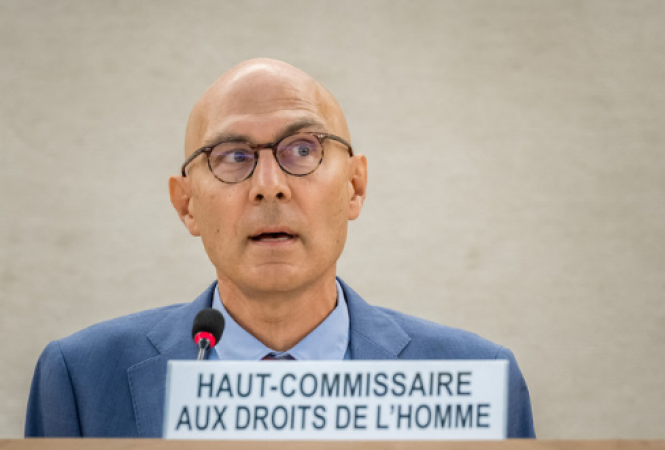
UNO: The United Nations Human Rights Commissioner, Volker Turk, has issued a resounding condemnation of the recent spate of Qur'an burnings in Europe, characterizing these acts as deeply offensive and emblematic of religious intolerance and discrimination.
His statement comes in the wake of a troubling series of incidents where far-right activists publicly burned the Qur'an, sparking outrage, protests, and violence in various locations across the continent.
The most recent of these incidents unfolded on July 1st in Sweden when a Danish-Swedish far-right activist set fire to a Qur'an outside a mosque in Malmö.
The act not only shocked the local community but also incited significant unrest. In response to these events, Turk underscored that burning the Qur'an is a violation of the fundamental right to freedom of religion and can serve as a catalyst for hatred and violence.
The UN Human Rights Commissioner called upon governments to take decisive action to prevent the recurrence of such incidents and to ensure that those responsible for these acts are brought to justice.
In his statement, Turk emphasized, "The burning of the Qur'an is a deeply offensive act that can incite hatred and violence. I call on governments to take action to prevent such incidents from happening and to ensure that those responsible are brought to justice."
The burning of religious texts, such as the Qur'an, has drawn widespread condemnation from religious leaders and human rights organizations globally.
Also Read: Kim Jong Un Embarks on Historic Journey to Russia for Talks with Putin Amidst Global Tensions
The Organization of Islamic Cooperation (OIC), representing 57 Muslim-majority nations, has explicitly called for the perpetrators of these attacks to be held accountable under the law.
Burning religious texts is a highly sensitive issue in many countries, carrying the potential to ignite violence and sectarian tensions. The unequivocal condemnation by the UN Human Rights Commissioner serves as a poignant reminder of the imperative to safeguard freedom of religion and protect against acts of religious intolerance and discrimination.
It underscores the critical role governments and societies play in ensuring that such acts do not infringe upon the rights and safety of individuals and communities.
The principle of freedom of religion is enshrined in international human rights law, and it is essential for fostering inclusivity, tolerance, and social cohesion.
Acts that infringe upon this fundamental right not only undermine the principles of human rights but also threaten the peace and stability of societies.
Turk's condemnation echoes the sentiment of the international community, reinforcing the need for concerted efforts to combat religious intolerance and promote respect for diverse faiths and beliefs.
In a world marked by diversity, understanding, and mutual respect must prevail to build societies where individuals can exercise their right to religious freedom without fear of discrimination or violence.
As we reflect on these incidents of Qur'an burning, it is a collective responsibility to protect and uphold the fundamental human rights that underpin our shared humanity.
Also Read: 2023 ODI World Cup: New Zealand Announces Experienced 15-Member Squad
Turk's call to action reminds us that safeguarding religious freedom is not only a moral imperative but a legal obligation enshrined in international treaties and conventions.
It is through such actions that we can strive for a world where all individuals are free to practice their religion and beliefs without fear, and where the principles of tolerance and respect reign supreme.